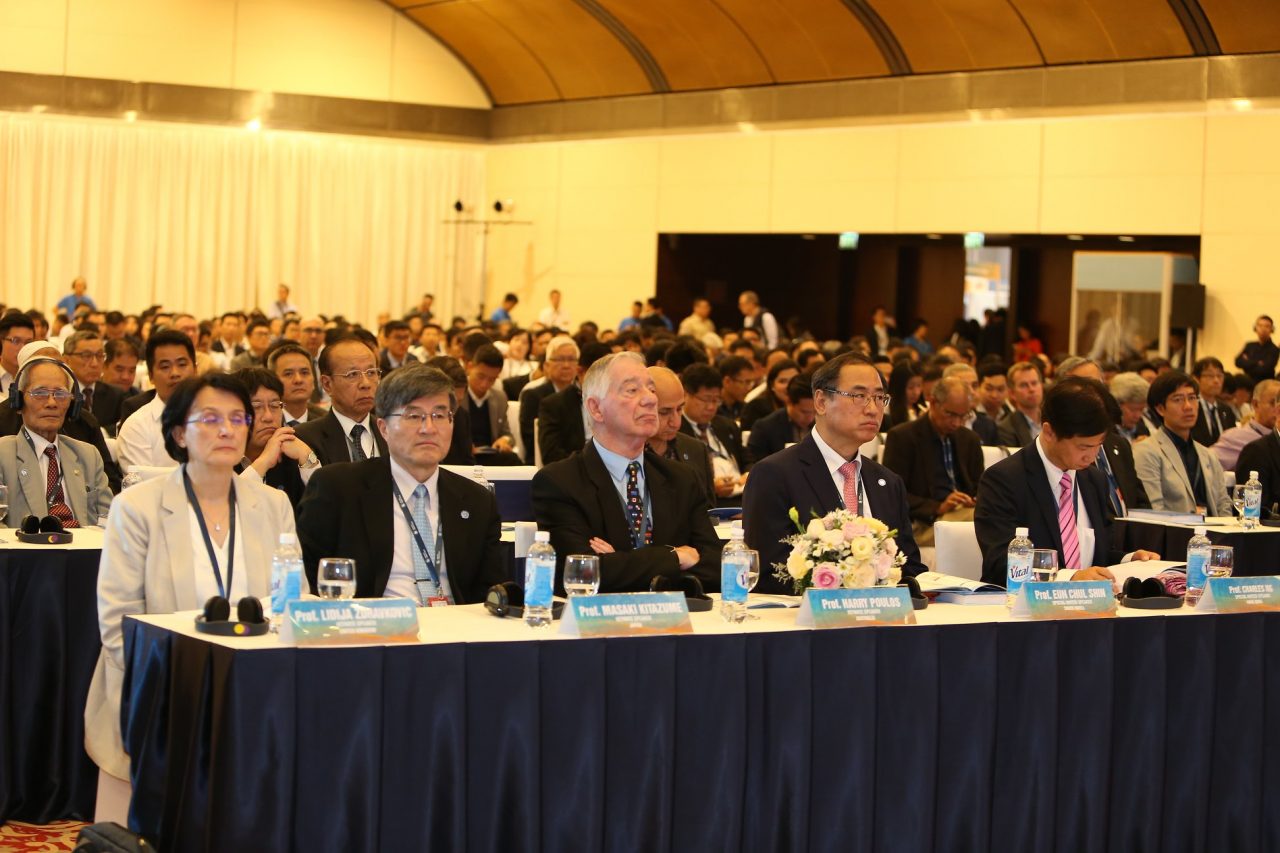The fourth International Conference on Geotechnics for Sustainable Infrastructure Development (Geotec Hanoi 2019) concluded in Hanoi on November 28-29, helping to narrow the geotechnical engineering gap between Vietnam and developed countries.
Geotec Hanoi 2019 attracted the participation of some 1,000 leading experts and scientists across the country and 40 other countries and territories. The event was jointly organised by the Vietnamese Society for Soil Mechanics and Geotechnical Engineering (VSSMGE), FECON Corporation, Thuyloi University (TLU), and Japan-based Kokusai Kogyo Co., Ltd.
Geotec Hanoi 2019 raised discussion on four key themes, including deep foundations, tunneling and underground spaces, ground improvement, and geotechnical modelling and monitoring. Two new topics dedicated to sustainable development, such as landslide and erosion, and coastal foundation engineering, were also added to the agenda.
Addressing the conference, Pham Viet Khoa, chairman of FECON Corporation, head of the organising board of Geotec Hanoi 2019, noted that Vietnam is located in a geographical area that faces various risks of natural disasters and climate change. Vietnam’s complex geological conditions in particular lead to troubles related to the construction, operation, and exploitation of nationwide infrastructure facilities.
Given this, optimal solutions are urged for the foundation and construction of infrastructure facilities. Khoa also called for scientists and professionals to work together to find optimal solutions for each infrastructure project that meet three key criteria in terms of safety, environmental friendliness, and low cost.
“Vietnam is doing its utmost to become a modern, industrialised country, so the demand for expanding infrastructure, industrial production, and urbanisation remains huge under the national development strategy to 2030, with vision to 2045,” Khoa said.
“One of the fastest ways to carry out the target is to apply cutting-edge technologies and advanced knowledge into developing each product and project,” the FECON chairman said.

Geotec Hanoi 2019 aimed to address three main goals. First of all, it helped narrow the geotechnical engineering gap between Vietnam and other developed countries. Besides, the conference became an arena for Vietnamese and overseas experts to share their knowledge and experience in implementing concrete projects.
Last but not least, the event served as a forum to draw the participation of managers, scientists, and businesses and they discussed the ways of applying advanced technologies and scientific achievements into deploying projects in line with the three criteria of safety, environmental friendliness, and low cost.
Deputy Minister of Construction Le Quang Hung said that Vietnam has experienced robust economic growth in the past years. The country has also seen a boom in construction with the total capital construction investment estimated at $60 billion per year. This triggered high demand for quality requirements and challenging issues for the construction sector, including those related to foundation and geotechnical engineering.
“This conference gives a good opportunity to experts to share knowledge and raise discussion on new technical solutions for Vietnam’s construction industry,” Hung said.
An exhibition was also held within the framework of Geotec Hanoi 2019, with 60 booths installed to showcase new technical solutions on design, production, and construction of foundation projects, underground constructions, infrastructure, and others.
Geotec Hanoi was organised in 2011, 2013, and 2016 in Hanoi and it has become a well-known event not only in Vietnam but also internationally for its excellent quality and organisational scale. At the latest event, Geotec Hanoi 2016 attracted the participation of more than 600 attendees from 31 countries and territories with 135 articles and papers published.

